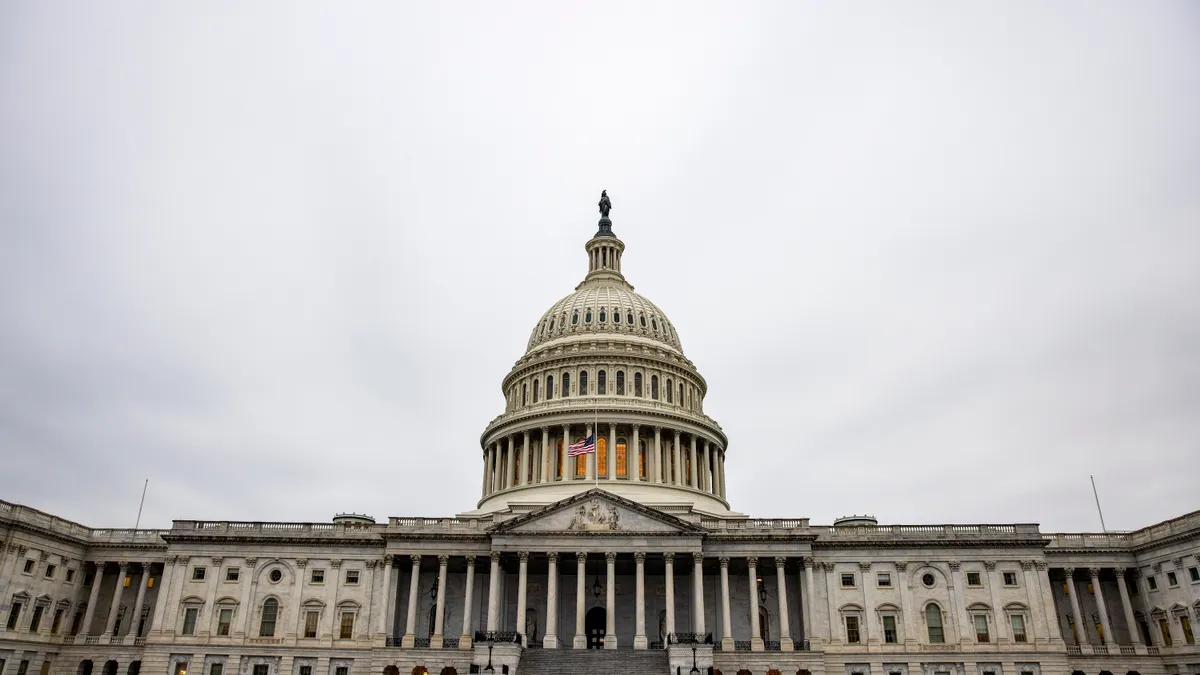Dive Brief:
- The House of Representatives passed a joint resolution Tuesday that nullifies the Office of the Comptroller of the Currency’s 2024 rulemaking banning expedited bank merger reviews.
- The Congressional Review Act resolution, approved by the Senate this month, heads to President Donald Trump to be signed. The House voted 220-207 to approve the resolution.
- “Many small banks rely on mergers to grow and stay competitive in today’s market. The Biden-era OCC rule on bank merger reviews would have imposed burdensome standards that stifled innovation and competition and limited consumer choice in the banking sector,” said Rep. French Hill, R-AR, chair of the House Financial Services Committee, in a news release.
Dive Insight:
Republicans on Tuesday billed the rollback as helping smaller banks grow and compete. But GOP lawmakers have also complained about the amount of time Biden-era regulators spent considering bank mergers and acquisitions.
Drawn-out timelines can be daunting to would-be dealmakers. A lot can happen in the time between modeling and closing on a deal, said Kirk Hovde, managing principal and head of investment banking at Hovde Group. “It’s hard for banks as they’re looking out, saying, ‘OK, this is what I think I’m buying, but I’m not closing on it for, say, six to nine months from when I submitted an offer,’ and it’s difficult to project out,” he said.
Rep. Andy Barr, R-KY – who led the rollback effort in the House – last year floated legislation seeking to curtail the amount of time banks wait for a regulatory response on merger applications with the Federal Reserve, saying last May “the regulatory purgatory, the indecision, is what we’re concerned about here.” Barr re-upped that legislation in March.
Barr said the 2024 OCC rule discouraged “responsible growth,” adding Tuesday’s move “supports healthy competition and helps prevent bank failures.”
“Customers now demand advanced technological features such as mobile and online banking, which requires substantial capital investments. Mergers often present the only viable path for these institutions to keep up with these regulatory and technological costs and continue serving their local communities,” Barr said in Tuesday’s release.
As Trump administration officials pursue what many view as a more pro-business agenda, Republican lawmakers and regulators have sought to ease operations for community banks.
The House and Senate’s moves to roll back the OCC rule “will provide regulators with the opportunity to reenvision the framework governing bank mergers so that it more effectively promotes competition while allowing banks to better serve their customers,” Rob Nichols, CEO of the American Bankers Association, said in a statement. “We look forward to President Trump signing this important resolution into law.”
The OCC rule, finalized last September, was intended to increase transparency in the merger evaluation process and strike a balance between two risks inherent in bank deals, said Michael Hsu, former acting chief of the OCC.
“One risk is that we approve too many mergers and therefore we’re approving bad mergers. The other risk is we approve too few mergers and therefore there are good mergers that should happen that aren’t,” he said in January 2024. “The purpose of being transparent is to encourage more accuracy on both ends.”
Also Tuesday, the Federal Deposit Insurance Corp. board voted to rescind its merger policy statement, issued last year and meant to increase scrutiny of combinations that create banks with $50 billion in assets or more.











